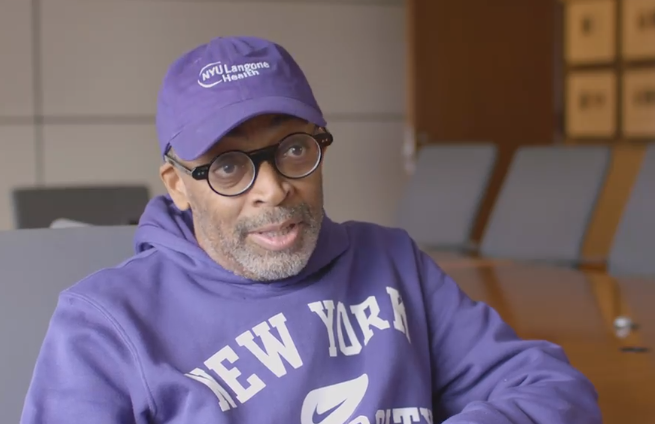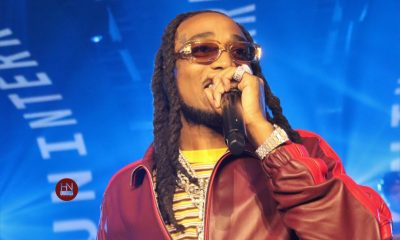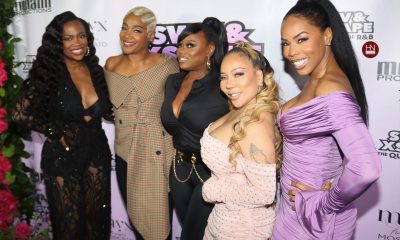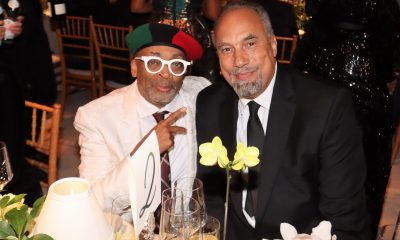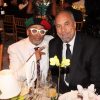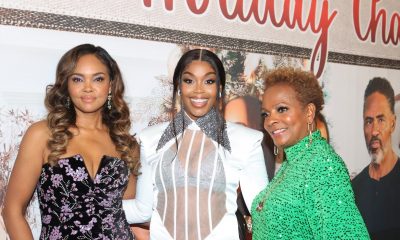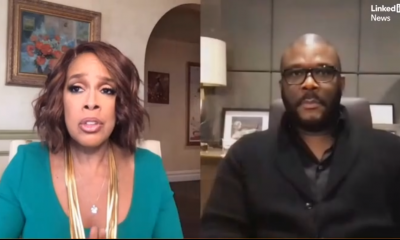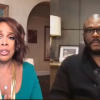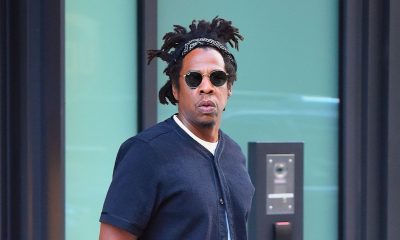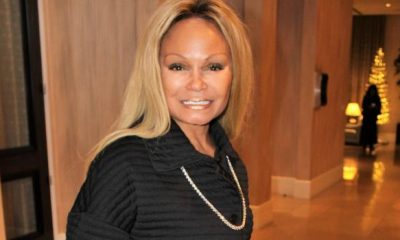Business & Health
Spike Lee Joins Growing List of Black Celebs to Receive COVID Vaccine to Combat Mistrust and Misinformation
“I’m hoping that if my brothers and sisters see me getting the vaccine, that perhaps they’ll think about the possibility of getting the vaccine,” said Lee, 63, who was eligible to be vaccinated as a professor in the NYU Tisch Graduate Film program.
Lee is the latest in a number of prominent African-Americans, including Kamala Harris, Tyler Perry, Samuel L. Jackson, Al Roker, Plies, Bill Russell and Kareem Abdul-Jabbar, to either receive or publicly endorse the use of the vaccine to prevent COVID-19.
COVID-19 disproportionately affects Blacks on many levels—including deaths, in which one out of every 645 Blacks in the U.S. has died from the virus, compared to one out of every 825 white Americans and one out of every 835 Latino Americans who have died from the virus, according to an analysis by APM Research Lab.
Such public displays of confidence in the vaccine are particularly important for Black communities, who have become distrustful of vaccine’s research, speed of approval, and the medical establishment overall.
About 35% of Black adults say they probably or definitely won’t get vaccinated, according to data released by The Kaiser Family Foundation (KFF) in December. That compares to 26% of both white and Hispanic Americans saying they probably or definitely won’t get vaccinated.
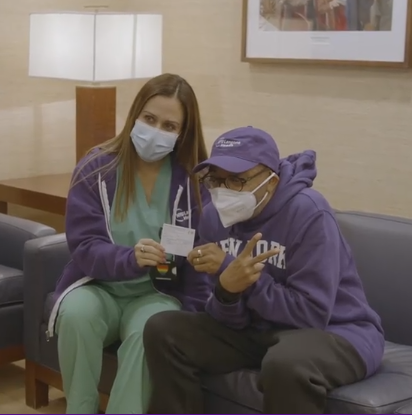
Lee at NYU Langone Feb. 5
Long History of Medical Mistrust
The Black community has had a long-held mistrust of medical institutions and clinical trials that dates back to the infamous Tuskegee syphilis experiment, which from 1932 to 1972, saw the U.S. Public Health Service and CDC conduct a study on the disease without the consent of 600 Black men involved. Almost all of them suffered from complications from the illness and 128 died.
Another example of the fractured relationship between the medical and the Black community involves the life of Henrietta Lacks, who was only 31 when she died of cervical cancer in 1951 at the prestigious Johns Hopkins Hospital in Baltimore. Soon after her death, and without her or her family’s consent, doctors removed some of her tumor cells which happened to do things no human cells could do before.
For 62, years, her family was omitted from the decision-making about the research involving Lacks’ cells—until 2013 when the National Institutes of Health agreed to grant them some control over how Henrietta Lacks’ genome is used.
Lee knows about the sensitivities surrounding Blacks and vaccines, and is careful to suggest that people get vaccinated after doing their own research, not “just because Spike saying ‘do right thing’.”
“I want people to do some research and think about getting this vaccine because this is not a hoax,” Lee said in a video discussion with NYU Langone Health.
Doctors on the Frontlines Against Misinformation and Misperceptions
Mistrust, structural racism and access issues have already started to hinder efforts to vaccinate Black Americans. According to a recent analysis from Kaiser Health News, Black Americans received COVID vaccinations at dramatically lower rates than white Americans in the first weeks of the chaotic rollout.
In examining data from 16 states by race, Kaiser found that white residents are being vaccinated at significantly higher rates than Black residents, with the most dramatic disparity occurring in Pennsylvania where, as of Jan. 14, 1.2% of its white residents had been vaccinated compared to only 0.3% of Black Pennsylvanians.
Despite reassurances from health professionals that the vaccine is safe, many in the Black community have voiced concerns about the speed in which the vaccines were approved and lack of long-term data on potential side effects.
In the KFF study, about half of Black participants who said they probably or definitely won’t get vaccinated cited various reasons, including a fear they may get COVID-19 from the vaccine (50%) or that they don’t trust vaccines in general (47%).
Doctors have debunked such those misperceptions, saying that while the development time was quick, it was aided by years of previous research on similar viruses, as well as data showing no serious side effects in studies containing tens of thousands of people.
Anti-Vaccine Movement Gets Celebrity Supporters As Well
While some Black celebrities have lent their names in support of the vaccine, others are more skeptical.
Last month, comedian/actress Tiffany Haddish was accused of cyberbullying and spreading misinformation on the voice-based app Clubhouse. According to Madame Noire, Haddish and moderators in a Clubhouse room, including Joe Budden, were accused by users of antagonizing black doctors who were attempting to share their scientific insight on the vaccine in a chat room.
In December, “Black Panther” and “Small Axe” actress Letitia Wright received widespread backlash on social media after she shared a video that questioned the safety of the vaccines. The backlash prompted Wright to delete her Twitter account.
Given the history and the amount of misinformation out there, celebrities like Lee realize the stakes are high, and that cutting through the noise on social media is important to saving Black communities.
“I understand why the black and brown communities are hesitant about getting the vaccine,” Lee said in the NYU video. “There is a history, a not nice history, of what doctors in this country have done to black and brown people. It’s not a surprise that it hits Black and brown communities, and we’re dying two and three times the white population, and that’s why I’m here. “
“That ‘19 rona’ as they say, doesn’t play,” Lee continued. “And the numbers aren’t a hoax. Do your research and make the intelligent decision.”
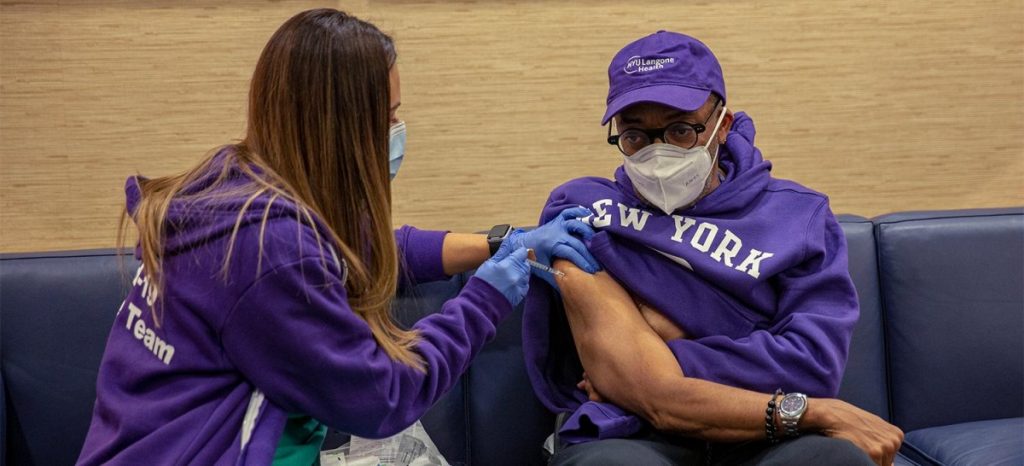
(Images courtesy of NYU Langone Health)


